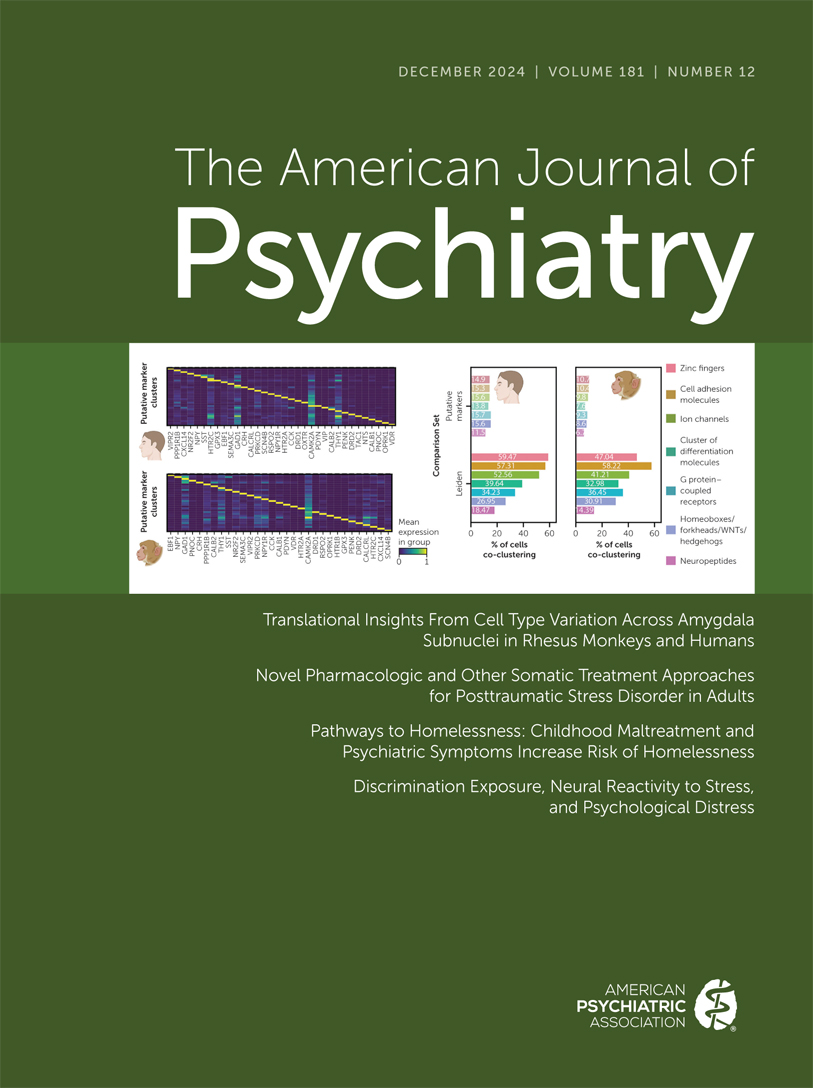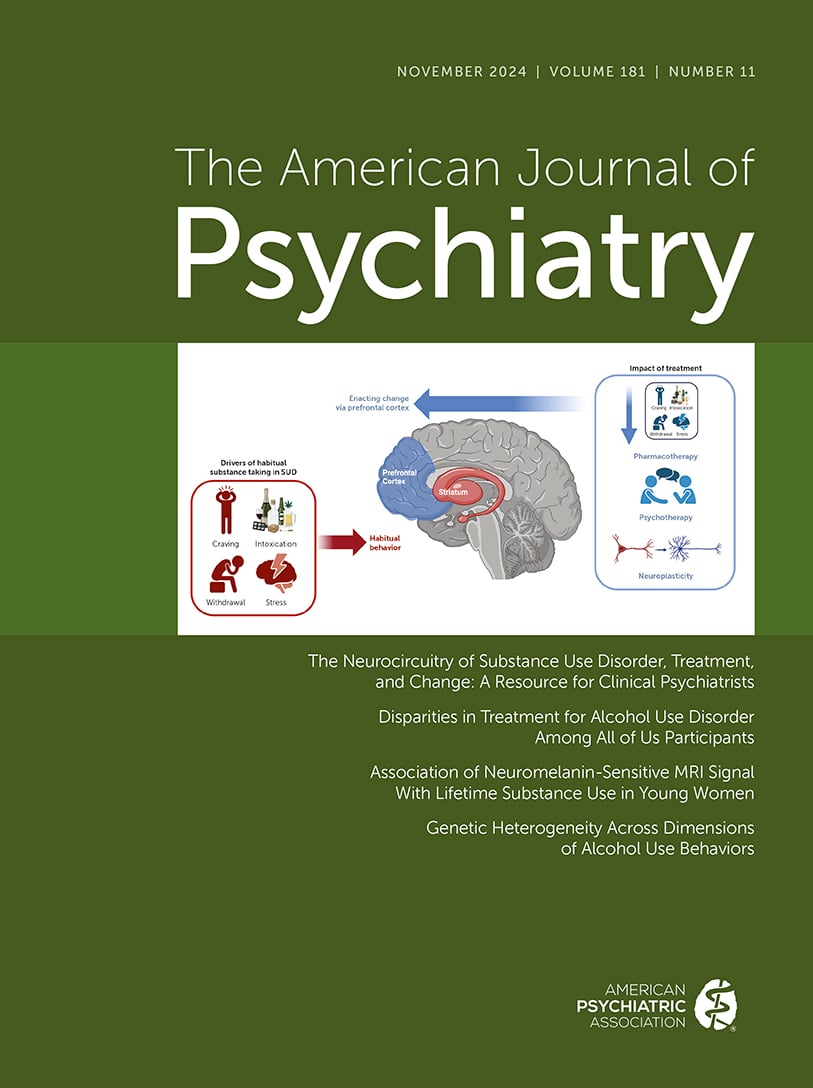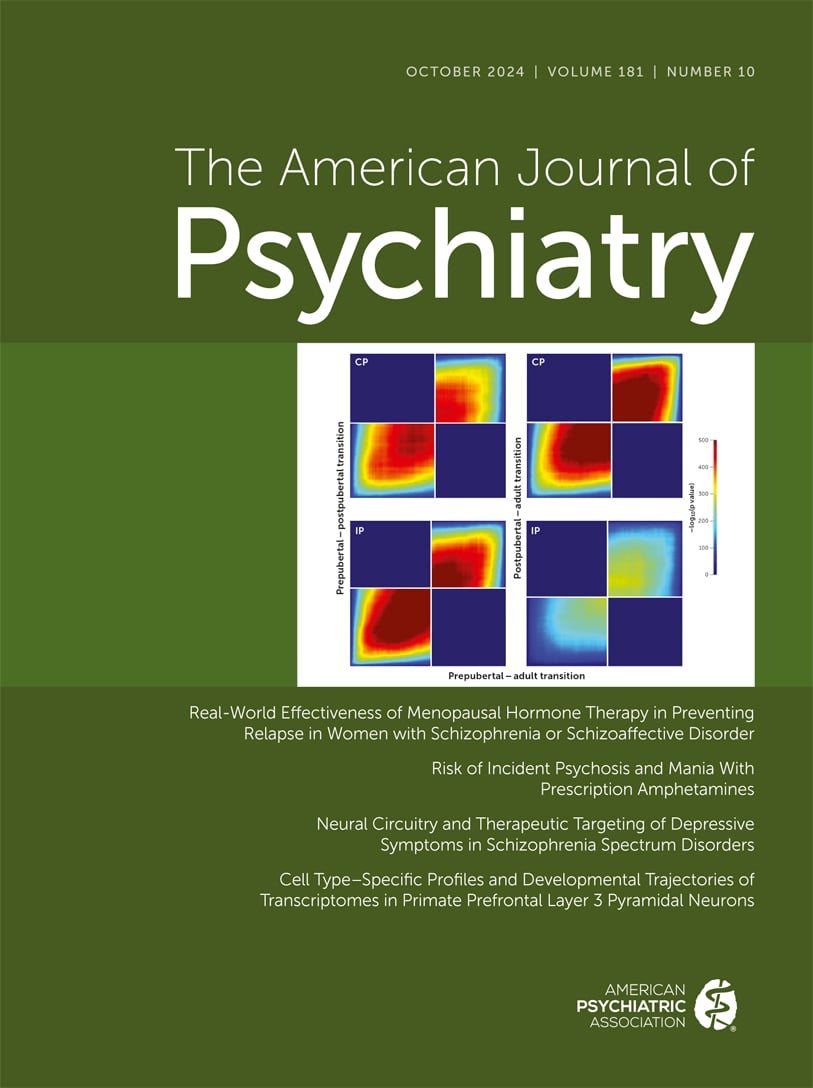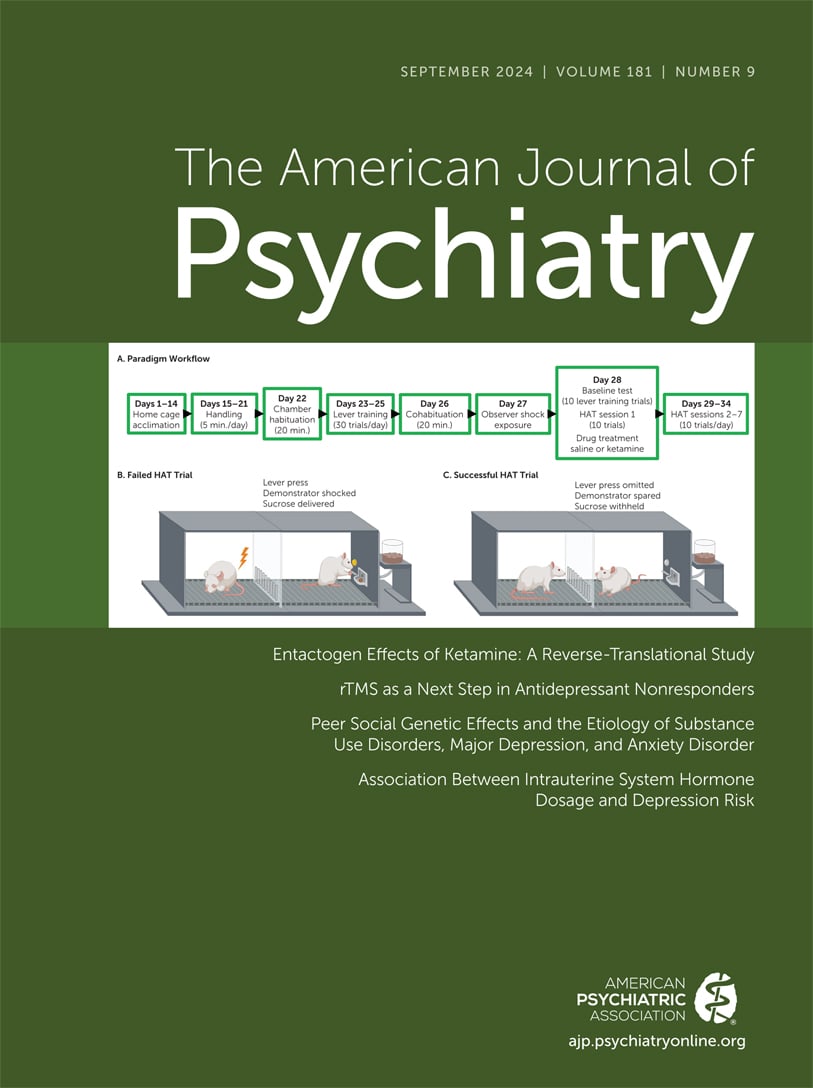American Journal of Psychiatry
- Volume 168
- Number 6
- June 2011
In This Issue
Perspectives
Editorials
Perspectives
Clinical Case Conference
Perspectives
Reviews and Overviews
Publication date: 01 June 2011
Pages581–592Objective: Interpersonal psychotherapy (IPT), a structured and time-limited therapy, has been studied in many controlled trials. Numerous practice guidelines have recommended IPT as a treatment of choice for unipolar depressive disorders. The authors ...
https://doi.org/10.1176/appi.ajp.2010.10101411New Research
Articles
Publication date: 01 June 2011
Pages593–602Objective: Maternal major depressive disorder is an established risk factor for child psychopathology. The authors previously reported that 1 year after initiation of treatment for maternal depression, children of mothers whose depression remitted had ...
https://doi.org/10.1176/appi.ajp.2010.10010032Publication date: 01 June 2011
Pages603–609Objective: Data on the effectiveness of antipsychotics in the early phase of schizophrenia are limited. The authors examined the risk of rehospitalization and drug discontinuation in a nationwide cohort of 2,588 consecutive patients hospitalized for the ...
https://doi.org/10.1176/appi.ajp.2011.10081224Publication date: 01 June 2011
Pages610–616Objective: Drug abuse is associated with substantial impairments in decision making. However, little is known about the time course of changes in decision-making ability after abstinence or about the effects of stress on decision making in individuals ...
https://doi.org/10.1176/appi.ajp.2010.10040499Publication date: 01 June 2011
Pages617–623Objective: A growing body of research suggests that deficient emotional self-regulation (DESR) is prevalent and morbid among patients with attention deficit hyperactivity disorder (ADHD). Family studies provide a method of clarifying the co-occurrence of ...
https://doi.org/10.1176/appi.ajp.2010.10081172Publication date: 01 June 2011
Pages624–633Objective: The developmental taxonomic theory proposes that neurodevelopmental factors play a critical role in the etiology of early-onset conduct disorder, whereas adolescent-onset conduct disorder arises as a result of social mimicry of deviant peers. ...
https://doi.org/10.1176/appi.ajp.2010.10081184Publication date: 01 June 2011
Pages634–641Objective: Previous research has shown that dopamine signaling in the limbic striatum is crucial for selecting adaptive, motivated behavior and that disrupted dopamine transmission is associated with impulsive and maladaptive behavior. In humans, positron ...
https://doi.org/10.1176/appi.ajp.2010.10050748Publication date: 01 June 2011
Pages642–648Objective: The authors used resting-state functional connectivity MRI to evaluate brain networks in patients with refractory and nonrefractory major depressive disorder. Method: In a cross-sectional study, 28 patients with refractory major depression, 32 ...
https://doi.org/10.1176/appi.ajp.2010.10101419Communications and Updates
Letters to the Editor
Correction
Communications and Updates
Book Forum
Communications and Updates
Books Received
Past Issues
View Issues Archive
Vol. 181 | No. 12

Vol. 181 | No. 11

Vol. 181 | No. 10
